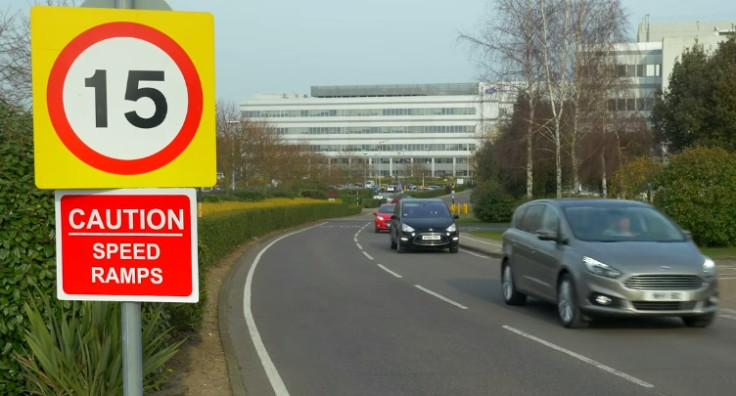Death of the speeding ticket: Ford S-Max reads road signs and slows automatically

Ford's new 2015 S-Max people carrier features a new technology which reads speed limit signs and automatically slows the car to stop drivers picking up speeding tickets.
Called Intelligent Speed Limiter, the feature uses front-facing cameras to scan for speed limit signs at the side of the road and reduces the supply of fuel to the engine to slow the driver's speed if they are travelling above the limit. The system does not apply the brakes, but will sound an alarm if the driver is speeding while going downhill, where reducing fuel will not help.
Drivers can use steering wheel-mounted controls to set a maximum vehicle speed which the car will never exceed, then if they enter an area with a lower limit, the car will see the signs and reduce fuel supply. The system is ideal for the increasing number of urban roads in London reducing their speed limits from 30 miles per hour to 20, but also works at speeds between 20 and 120 mph. When the driver enters an area with a higher limit, the car automatically increases its limit.
This will be welcome news to the 15,549 UK drivers who were given speeding fines of at least £100 in 2013, according to Ford.
The system also uses data from the car's satellite navigation system to determine a suitable maximum speed limit on routes where speed signs appear less frequently, such as on long country roads. Drivers can temporarily override the system with a firm press of the accelerator pedal.
Stefan Kappes, active safety supervisor at Ford of Europe, said: "Drivers are not always conscious of speeding and sometimes only become aware they were going too fast when they receive a fine in the mail or are pulled over by law enforcement. Intelligent Speed Limiter can remove one of the stresses of driving, helping ensure customers remain within the legal speed limit."
The new seven-seater S-Max is available to order now and will go on sale this summer, with prices starting at around £25,000. As well as the new speed limit system, the car includes autonomous braking which can stop the car at speeds up to 112mph in the event of an emergency. Also included is Pedestrian Detection, which recognises people in the road ahead, or who may step out into the vehicle's path; the brakes are then automatically applied if the driver doesn't respond quickly enough.
Pim van der Jagt, executive technical leader of Ford's Research & Advanced Engineering division, said: "We're not just developing cars at Ford, we're also developing technologies to make driving more convenient, safer and ultimately help improve mobility around the world."
© Copyright IBTimes 2025. All rights reserved.






















